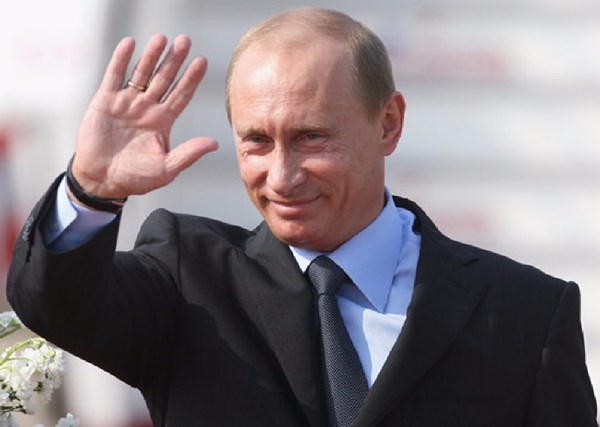Kremlin prepares Russians for Putin's indefinite rule
After launching the most far-reaching constitutional reforms since the early 1990s, the Russian government appears to be starting a PR campaign in which citizens ask the current president Vladimir Putin to remain in power after 2024.
On Tuesday in an episode of the TV channel Russia 24, Alena Smyslova, deputy head of the Cherepovets State University, spoke about the idea of extending Putin’s powers.
During a meeting with the public, Smyslova asked whether there would be any point to holding presidential elections in 2024 in light of the constitutional plebiscite scheduled for spring 2020. The planned voting is a kind of “vote of confidence in the person making the amendments,” she said.
“Does it make any sense, then, to hold additional Russian presidential elections, if we indicate our position now already, at this stage? After voting now, we can extend your powers. And we will understand that we have six years of stability ahead of us, another six years of support for educational projects,” she explained.
Smyslova said that this is not her own idea – students have been asking questions about the constitutional amendments. “And we, the adults, must understand how to respond to them,” she said.
Putin responded by claiming that he did not propose the amendments in order to prolong his own rule. He was silent, however, about his plans for the period after 2024.
“If we hold, and I hope it happens within the designated period, a nationwide vote, it’s essentially a plebiscite. It’s essentially a declaration of the will of the citizens. I proposed this so that these amendments will be adopted, or not adopted. If they are adopted, no one can say that there’s something wrong here. This is the highest form of democracy… But should the current president’s powers be prolonged in that way? I think not. Because when it comes to electing the head of state, it should be done on an alternative basis,” Putin said.
He added that the amendments to the constitution had been “dictated simply by life”. “During my time working as president and chairperson of the government, it has become clear to me that several things are not working as they should,” Putin explained.
As an example, he mentioned municipal government, which is currently not linked directly to national government, but will be integrated vertically into a united government after the reforms.
On January 23, the State Duma passed a bill on the constitutional amendments on the first reading. According to Putin, the plan is to implement the reforms over a three month period.
As a result of the reforms, a new organ of government will be enshrined in Russia’s constitution – the State Council, which has existed since 2000, but has only had advisory functions.
The amendments propose to give the council three types of power which are currently held by the president. These are to “ensure the coordinated functioning and cooperation of the organs of state governance”, “determine the primary areas of Russia’s domestic and foreign policy”, and determine “the priority areas of the country’s socio-economic development”.
The list of the State Council’s powers and its place within the hierarchy of Russian government could still be expanded upon. According to the amendments, its status will be determined by federal law, which will be adopted separately and for which no national voting will be held.
